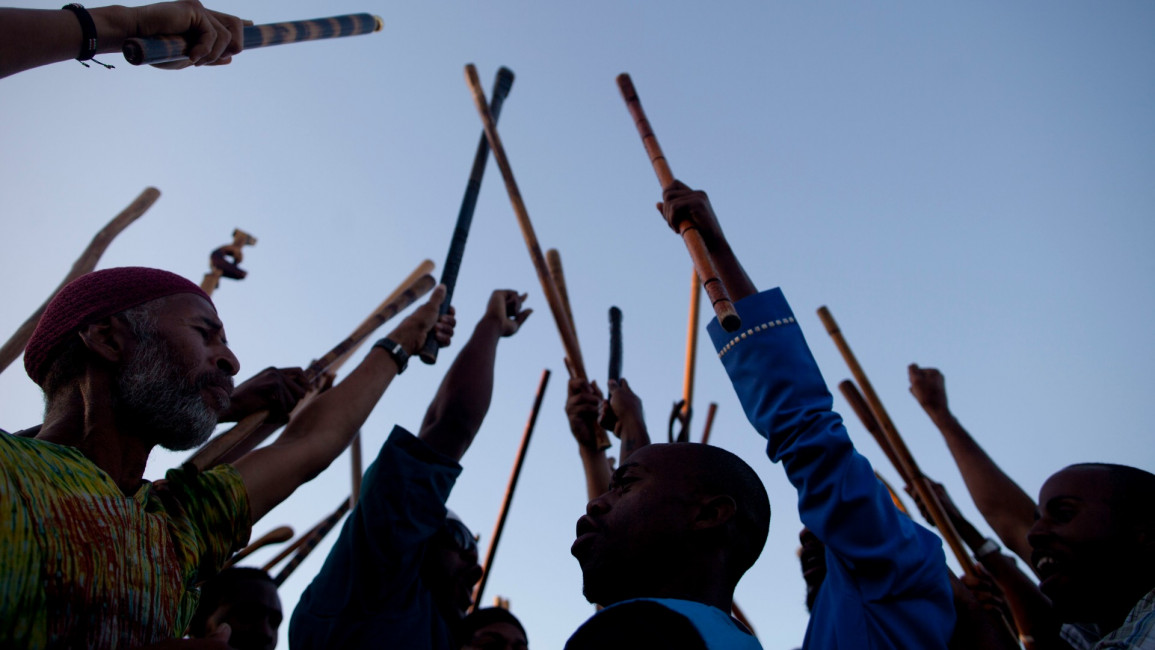Israel orders 45 Black Hebrew Israelites to leave within 60 days
Israel orders 45 Black Hebrew Israelites to leave within 60 days
Israel's interior ministry has ordered dozens of members of the Black Hebrew Israelite community to leave, despite many having been born in the Jewish state.
2 min read
Black Hebrew Israelites began settling in Israel in the 1960s [Getty/ Archive]
Israeli authorities have ordered 45 members of the Black Hebrew Israelite religious community to leave the country after they attempted to formalise their status in the Jewish state, according to a Haaretz report on Monday.
Israel's interior ministry sent letters urging members of the community to leave within 60 days, despite some of them having been born in the Jewish state.
Some of those ordered out of Israel have lived in the country for more than 20 years.
"I was born here, raised here, was educated here and I don't know any other place in the world," Yelital Herkles, 22, was quoted by Haaretz as saying. "This is my home, why should I have to leave my home?" she added.
Black Hebrew Israelites are groups of African Americans who believe they are the descendants of the ancient Israelites of the Bible. The movement began in the late 19th century in the United States, however later expanded into separate strands.
Israel's Black Hebrew Israelite community first came together in Chicago in the 1960s under the leadership of Ben Carter, a preacher who later became known as Ben Ammi Ben-Israel.
Carter's followers settled in Israel in the 1960s and 1990s, with many eventually receiving residency and citizenship.
Some, however, did not receive did not receive citizenship or residency along with their fellow community members, and are now under threat of having to leave.
According to official Israeli population data, the community of "Black Hebrews" is made up of some 2,000 people who live mainly in the southern city of Dimona.
"When the decision was made and their status in Israel was regularised, a list was drawn up of community members and their leaders, and whoever was on it indeed became a permanent resident," Israel's Population and Immigration Authority said in a written response to a community activist. "Applications made years afterward are examined on a case-by-case basis, and anyone asked to leave has in practice been living in Israel illegally for many years," the letter continued.
An advocate for the group told Haaretz that there are around 100 members of the community still without legal status.
Israeli authorities have contested that number, saying that only a few dozen remain without residency or citizenship.
Follow us on Facebook, Twitter and Instagram to stay connected


![President Pezeshkian has denounced Israel's attacks on Lebanon [Getty]](/sites/default/files/styles/image_684x385/public/2173482924.jpeg?h=a5f2f23a&itok=q3evVtko)



 Follow the Middle East's top stories in English at The New Arab on Google News
Follow the Middle East's top stories in English at The New Arab on Google News


